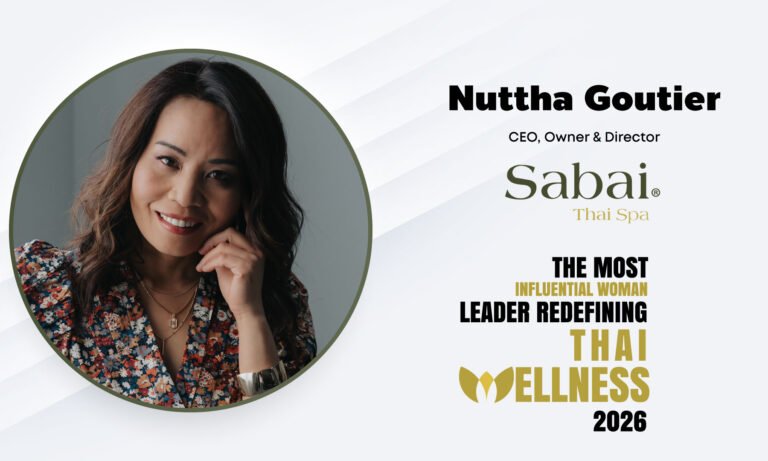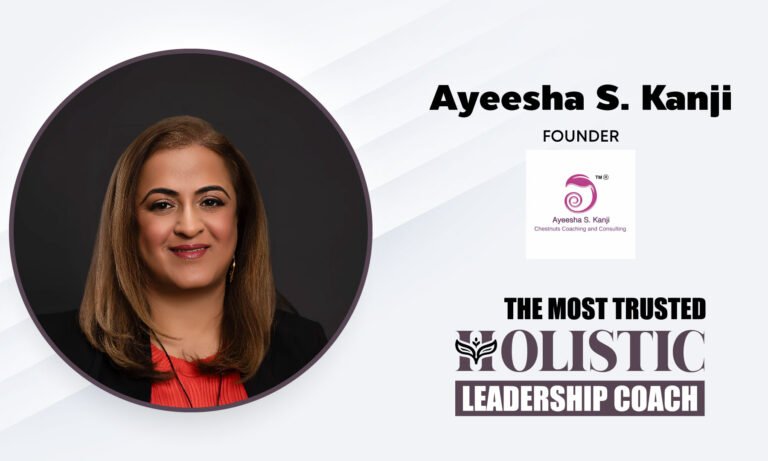The Most Trusted Trainer in Mental Health Continuing Education to Follow in 2025

Dr. LaVerne Hanes Collins: The Trusted Educator in MultiCultural Mental Healthcare
By The Influential Today Magazine
In the landscape of mental health, trust is the most sacred currency. It is earned not through textbooks alone, but through lived experience, unwavering integrity, and a profound commitment to seeing and honoring the whole person. It is with this understanding that The Influential Today Magazine proudly recognizes Dr. LaVerne Hanes Collins as The Most Trusted Trainer in Mental Health Continuing Education to Follow in 2025. As the owner of New Seasons Counseling, Training, and Consulting, she is not merely teaching therapeutic techniques; she is leading a movement to create healing spaces where People of Color can finally find therapy that affirms, rather than erases, their lived realities. Her work, born from a deeply personal journey, is a testament to the power of one person’s mission to build what a system has long failed to provide.

The Towel and the Seed: Formative Experiences of Race and Belonging
LaVerne’s story begins in one of Pittsburgh’s small steel mill towns during the 1960s and 70s. Her childhood was an early education in navigating dual worlds. “I grew up… the only Black child on my street for the early part of my developmental years,” she recalled. “Most of my early experiences with Black culture came from church and Black civic groups with my mother and grandmother. Then I returned to my predominantly White neighborhood and school.” This constant movement between spaces “sparked my early awareness of race, identity dynamics, and belonging.”
A single, searing memory from the age of six crystallized this awareness into a lifelong lesson. It was the day she received a new, monogrammed towel, a simple childhood gift that carried a devastatingly complex message. The towel featured her name along with the image of a little White girl. When she asked her mother why, the answer was a piercing truth that would echo throughout her life. Her mother said, “They don’t make things like that for us.”
“Sixty years later, I still have that towel because of what I learned that day, and what I continue to unpack from those 8 words,” LaVerne shared. That simple object became a powerful symbol of a world that rendered her invisible, a world where essential tools for identity and affirmation were not designed with her in mind.
Years later, as a student at Syracuse University in the late 1970s, she found the belonging that her childhood neighborhood lacked. She immersed herself in a vibrant community of Black students from across the diaspora, including African Americans, Barbadians, Haitians, Jamaicans, and Trinidadians. “We were creating vibrant cultural spaces of our own: a gospel choir, dance troupe, fraternities, and sororities,” she explained. “We thrived in our own cultural rhythm, one that continues to bind many of us to this day.” They had, as she and her peers often say, an HBCU experience at a predominantly White institution, and it was “amazingly affirming.” Although her major was not psychology, she found herself drawn to electives in psychology and sociology, particularly those exploring race, faith, and culture. A sociology paper she wrote on the Black Church earned an A+ and high praise from her professor. That moment, she said, “planted a seed.”

A System Not Built for Us: The Call to Create
That seed lay dormant for years, only to sprout when she returned to school for a master’s degree in community counseling and then a PhD in Christian counseling. As a licensed counselor, the lesson of the towel returned with professional clarity. She saw the problem laid bare: “most counseling theories weren’t built for People of Color. They overlooked race-based, historical, and intergenerational trauma.” The curricula and frameworks she had been taught were overwhelmingly Eurocentric, designed to be applied universally without regard for cultural context or the unique wounds carried by marginalized communities.
“I realized I had been taught to apply Eurocentric frameworks to every culture including my own,” she stated. The echo of her mother’s words resonated once more, this time in the context of her chosen field: “Just like Mom said, ‘They don’t make things like that for us.’” This was not a moment of defeat but of activation. If the right contexts for healing did not exist for her community, she would forge them herself. “So, I started making adjustments to the rigid norms we were taught,” she declared. This decision marked the beginning of her life’s mission: to develop continuing education programs that equip counselors to authentically and effectively address race, history, and culture in the counseling room, ensuring therapy becomes a space of affirmation. “That’s my mission,” she said. “That’s my joy!”
New Seasons: A Vision for Culturally Centered Care
Driven by the disparities and lack of cultural connection she witnessed in therapy for People of Color, LaVerne launched New Seasons Counseling, Training, and Consulting. The vision was to provide both direct counseling and culturally centered continuing education, addressing the gaps she had identified. Over time, the practice has expanded into a multi-tiered organization that not only delivers counseling services but also offers advanced continuing education and a unique mentoring program designed to cultivate more trainers in this highly specialized field.
Her typical day is a dynamic blend of direct service, curriculum design, and national leadership. She holds counseling appointments several days a week, often with Women of Color who, she notes, “have never before been invited to explore their concerns… through the lens of their racial, gender, spiritual, and other identities.” She consciously shifts the therapeutic language away from “treatment” or “fixing” supposedly damaged people and toward healing and changing oppressive systems. “I make sure I begin sessions by creating psychological safety to connect authentically because that is essential for healing,” she affirmed. Her days are also filled with delivering webinars or keynote addresses to universities and corporations, and coaching the year-long cohort of her masterclass program.
The Three Tier Model: From Individual Healing to Systemic Transformation
At the heart of New Seasons is LaVerne’s innovative three-tier model, a structure designed to move multicultural mental health care beyond individual sessions and into the realm of systemic transformation. The first tier is direct counseling for adults, providing the foundational, on the ground healing that is so desperately needed. The second tier consists of continuing education training for clinicians, where she equips existing providers with the tools to address hidden bias and historical trauma with cultural humility and sensitivity.
The third and most transformative tier is the MultiCultural MasterClass (MC²), a train-the-trainer program that empowers counselors to become multicultural mental health trainers in their own right. This structure is a deliberate strategy to scale impact. It cultivates cultural sensitivity and cultural humility within the profession and creates a nationwide network capable of delivering culturally responsive training, multiplying her influence far beyond her own practice.

Beyond Metrics: Redefining Success as Liberation
In a field often driven by metrics and measurable outcomes, LaVerne offers a radical and deeply trusted alternative. “I don’t focus on success metrics any more because that kind of focus is antithetical to the idea of decolonizing therapy,” she explained. “Performance metrics and outcomes are necessary in business, but they’re not freeing when it comes to emotional healing for people who carry the scars of societal wounds.”
For LaVerne, true success in the context of liberation counseling is measured differently. “Healing must be liberating for People of Color,” she stated. One sign of growth, she explained, is “the freedom to get unbound from externalized success measures that People of Color have internalized.” It can also involve helping People of Color identify how they have denied themselves the right to be angry for fear of judgment. In her framework, healing is “knowing that their rage is not inherently bad, but a sign of systemic problems that they are tired of being blamed for.” This redefinition of success, rooted in empowerment and validation, is a cornerstone of why her approach is so profoundly trusted.

Navigating Resistance and Empowering a New Generation
Promoting such a paradigm shift is not without challenges. LaVerne identifies both systemic and individual resistance. Systemic resistance comes from “providers clinging to Eurocentric, deficit focused frameworks.” To combat this, she offers culturally specific training that reframes narratives toward strengths based, culturally informed care. Individual resistance is more personal and painful; she has encountered people of other races who “would rather continue suffering or even die rather than accept help from a woman of color.” While she cannot change the latter, her focus remains on dismantling the systemic bias that allows such prejudice to persist.
Her journey serves as a powerful example, and she actively embraces her role as a mentor and leader, particularly for women of color. “I hope to normalize success for other women of color and provide a roadmap to follow,” she said, emphasizing that “representation is a healing intervention.” Through her practice and the MC² program, she coaches experienced counselors through career pivots, entrepreneurship, the challenges of imposter syndrome, and systemic racism. Her legacy, she hopes, will be one of “multiplied impact through the dozens of men and women we mentor and launch into their own spheres of influence.”
This mission is fueled by a deep well of personal resilience, guided by Jana Cachola’s quote: “Resilience is not about being able to bounce back like nothing has happened. Resilience is your consistent resistance to giving up.” Looking ahead, LaVerne is energized by the trends of decolonizing therapy, expanding multicultural mental health in the workplace, and scaling the next generation of trainers. Her weekly MultiCultural Mindset podcast for therapists and her 2023 book, Overlooked: Counselor Insights for the Unspoken Issues in Black American Life, serve as powerful tools in this work, providing a robust framework to strengthen the movement toward truly informed mental health education.
From a 6 year-old girl holding a towel that rendered her invisible, to the nationally recognized educator she is today, Dr. LaVerne Hanes Collins has spent her life creating what the world told her was not made for her. In doing so, she has become one of the most essential and trusted voices in healthcare today, guiding a generation of healers toward a more just, affirming, and compassionate future.







